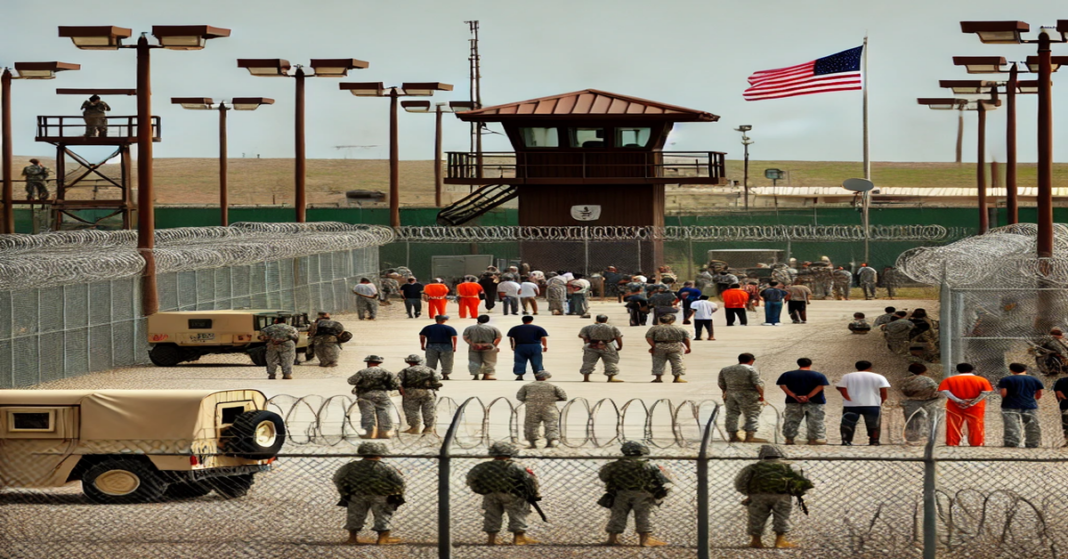President Donald Trump has issued a directive to the Department of Defense and the Department of Homeland Security to expand the Migrant Operations Center at Naval Station Guantanamo Bay to full capacity. The move aims to provide additional detention space for what the administration describes as “high-priority criminal aliens” unlawfully present in the United States.
In a memorandum released Wednesday, Trump stated that the expansion is necessary to “halt the border invasion, dismantle criminal cartels, and restore national sovereignty.” The order instructs the relevant departments to take all appropriate actions to meet immigration enforcement needs identified by both the Department of Defense (DOD) and the Department of Homeland Security (DHS).
The Guantanamo Bay facility, historically known for detaining terrorism suspects, has long housed a separate migrant operations center. The center was originally established to hold migrants intercepted at sea, particularly during past crises involving Haitian and Cuban refugees. While it has been used sparingly in recent years, Trumps’s order signals a shift in policy by the Trump administration, expanding its role in immigration enforcement.
Political and Legal Implications
The move is expected to face strong opposition from immigrant rights groups and legal advocates, who argue that detaining migrants in an offshore facility could undermine their due process rights and limit access to legal counsel. Some critics view this as a revival of controversial immigration policies from Trump’s first term, including detention and deportation strategies that were widely challenged in court.
However, Trump and his supporters argue that the decision is necessary to address what they describe as an escalating crisis at the U.S.-Mexico border. The administration has repeatedly emphasized its commitment to tougher immigration enforcement, citing national security and crime concerns.
The memorandum also includes a legal disclaimer stating that the directive does not create any enforceable rights for individuals against the U.S. government or its agencies, signaling an effort to shield the policy from legal challenges.
Reactions from Lawmakers and Advocacy Groups
Democratic lawmakers swiftly condemned the order, with Senate Majority Leader Chuck Schumer calling it a “dangerous and unnecessary escalation of immigration enforcement that violates America’s values.”
Representative Alexandria Ocasio-Cortez also criticized the decision, stating, “Guantanamo has long been a symbol of human rights abuses. Expanding migrant detention there is cruel and unjust.”
On the other hand, Republican allies praised the move as a decisive step toward securing the border. “This is exactly the kind of leadership we need to stop illegal immigration,” said House Speaker Mike Johnson. “We cannot allow criminal aliens to roam freely in our communities.”
Uncertain Implementation Timeline
While Trump’s directive orders immediate action, the timeline for full implementation remains unclear. The capacity of the existing Migrant Operations Center is limited, and expanding it may require additional funding and logistical coordination between the DOD and DHS.
As the administration moves forward with its immigration crackdown, legal challenges and political battles over the policy are likely to intensify, setting the stage for yet another high-profile fight over the future of U.S. immigration policy.
A global media for the latest news, entertainment, music fashion, and more.





